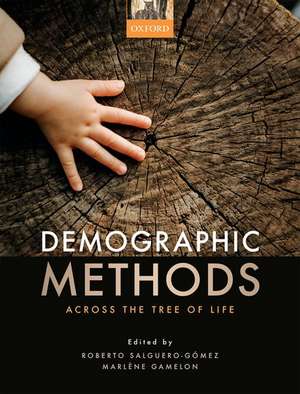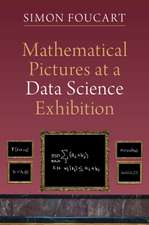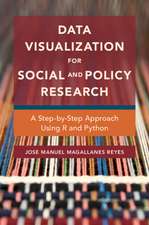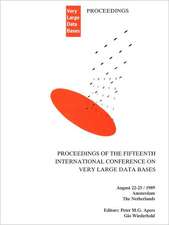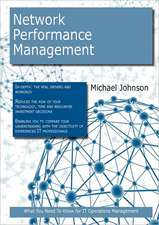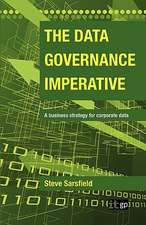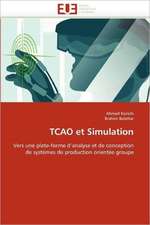Demographic Methods across the Tree of Life
Editat de Roberto Salguero-Gomez, Marlène Gamelonen Limba Engleză Paperback – 31 aug 2021
| Toate formatele și edițiile | Preț | Express |
|---|---|---|
| Paperback (1) | 294.30 lei 10-16 zile | +58.02 lei 4-10 zile |
| OUP OXFORD – 31 aug 2021 | 294.30 lei 10-16 zile | +58.02 lei 4-10 zile |
| Hardback (1) | 571.19 lei 10-16 zile | |
| OUP OXFORD – 31 aug 2021 | 571.19 lei 10-16 zile |
Preț: 294.30 lei
Preț vechi: 398.70 lei
-26% Nou
Puncte Express: 441
Preț estimativ în valută:
56.32€ • 61.16$ • 47.31£
56.32€ • 61.16$ • 47.31£
Carte disponibilă
Livrare economică 21-27 martie
Livrare express 15-21 martie pentru 68.01 lei
Preluare comenzi: 021 569.72.76
Specificații
ISBN-13: 9780198838616
ISBN-10: 0198838611
Pagini: 400
Ilustrații: 86 colour line figures and illustrations
Dimensiuni: 190 x 246 x 19 mm
Greutate: 0.89 kg
Editura: OUP OXFORD
Colecția OUP Oxford
Locul publicării:Oxford, United Kingdom
ISBN-10: 0198838611
Pagini: 400
Ilustrații: 86 colour line figures and illustrations
Dimensiuni: 190 x 246 x 19 mm
Greutate: 0.89 kg
Editura: OUP OXFORD
Colecția OUP Oxford
Locul publicării:Oxford, United Kingdom
Recenzii
This book is a gold mine of modern demographic tools, research ideas, and applications and presents solutions through the use of cutting-edge demographic tools and frameworks applied to data collected across the tree of life.
This book is a very carefully crafted, wide-ranging collection of contributions, which are almost without exception of high quality and report useful ideas, resources, and approaches. The collective authority of the authors is impressive, as is the range of approaches reviewed. The book is sufficiently comprehensive to age slowly, and the cited references and case studies make for excellent starting points when delving into specific topics. The audience is any quantitative ecological lab and demography university course at graduate or higher level.
This book is a very carefully crafted, wide-ranging collection of contributions, which are almost without exception of high quality and report useful ideas, resources, and approaches. The collective authority of the authors is impressive, as is the range of approaches reviewed. The book is sufficiently comprehensive to age slowly, and the cited references and case studies make for excellent starting points when delving into specific topics. The audience is any quantitative ecological lab and demography university course at graduate or higher level.
Notă biografică
Roberto Salguero-Gómez is Associate Professor in Ecology at the Department of Zoology and a Tutorial Fellow at Pembroke College at the University of Oxford, UK. He also holds research affiliations at the University of Sheffield, UK, the University of Queensland, Australia, and the Max Planck Institute for Demographic Research, Germany. He studies population responses to climate change, the evolution of senescence, and drivers of variation in life history trait variation across plants and animals. He has authored over 80 peer-reviewed papers, including articles in Nature, PNAS, Nature Ecology and Evolution and Ecology Letters. He serves as Associate Editor at Ecology Letters, Journal of Ecology, Journal of Animal Ecology, and Theoretical Population Biology. He has also edited 10 special features and published the book "The Evolution of Senescence in the Tree of Life" (2017).Marlène Gamelon is a Researcher at the Centre National de la Recherche Scientifique (CNRS) in Lyon, France. She is also researcher at the Centre for Biodiversity Dynamics (CBD) at the University of Science and Technology (NTNU) in Trondheim, Norway. She is interested in understanding how free-ranging animal populations respond to environmental changes, including abiotic (climate conditions), anthropogenic (harvest), and biotic (intra- and interspecific interactions) factors. Her work mainly relies on individual long-term monitoring of birds and mammals. She has authored peer-reviewed papers, including articles in Trends in Ecology and Evolution, Ecology Letters, Evolution, Journal of Animal Ecology and the American Naturalist.
